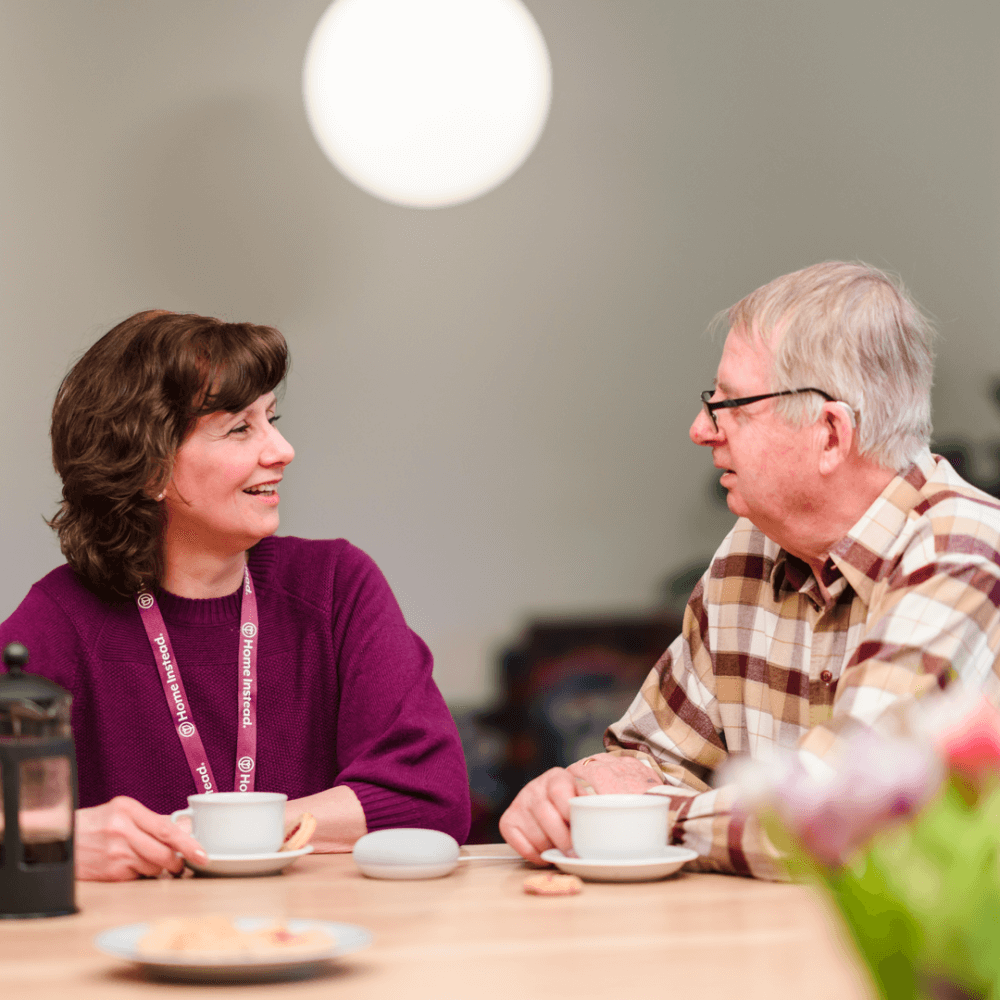Fall Prevention Care Plan: How to Avoid Falls from Hearing Loss
We know that falls among the 65+ age group can result in fractures and extended hospital stays. But how does hearing loss play a part? Let's take a look.

How Hearing Loss Affects Mobility and Your Fall Prevention Care Plan
It’s a stark reality: Seniors with hearing loss are 2.39 times more likely to fall than their peers (Jiam NT, Li C, Agrawal Y., 2016), with the risk increasing by 1.4 times per ten decibels of lost hearing (Signia for Academy of Doctors for Audiology, 2017). This heightened risk is due to the disruption of the inner ear’s balance mechanisms, which significantly impairs our ability to maintain a steady gait.
We are also more likely to miss environmental sounds that signal danger, such as approaching vehicles, doors closing, or uneven pavement slabs. As a result, we see higher-impact falls and injuries from tripping, slipping, or being knocked.
Hearing loss also places a significant cognitive load on our brains as they work harder to process sounds. This additional strain can lead to a lack of focus, significantly increasing the risk of falls. As we age, this over-focusing on trying to hear also hampers our ability to react safely.
Dual sensory loss (vision and hearing) is common among older adults (Schneck ME et al., 2012). As we struggle with hearing loss, we rely heavily on sight to decipher social and environmental cues and vice versa. The extra strain will likely damage the compensating sense.
Other cognitive conditions, like dementia, also play a part. For example, someone living with dementia may not be able to process sounds or visual cues in the way they once did. This affects their ability to move about safely, even in environments they know.
All of this plays a significant role in how you develop your fall prevention care plan.
[We recently wrote guides on vision and brain function and falls. We recommend grabbing a coffee and reading those, too. They can be found here:
So, How Do You Plan For Hearing Loss in Your Fall Prevention Care Plan?
The vast majority of senior falls happen in the home. In fact, over 74% of falls among older adults occur at home. Your fall prevention care plan needs to start here.
Consider how your loved one moves about the home and how their hearing affects their ability to do this well.
Ask yourself:
- Is it time for a hearing test?
- How can you encourage them to consider hearing aids?
- What can you do to make hearing aids more comfortable to wear? (A common reason for not wearing them)
- How can you encourage family and friends to make themselves heard? (In conversation or movement)
- Can you make hearing the door, phone or oven timer easier?
- What can you provide to help support balance?
Need some tips? Signup here to download our fall risk reduction checklist.

Home Care: The Key to Significantly Reducing Fall Risks in Elder Care
Home care provision should provide further preventative steps by monitoring and signalling issues to you and your health care professionals.
During scheduled visits, your care professionals will provide several services, including personal care, household chores, physiotherapy, and more. Their interaction with your loved one and their training should help you spot challenges and deal with them quickly.
The more proactive you can be and the more expertly trained your care professional team is, the more you will reduce fall risks.
Planning a Fall Prevention Care Plan with the Assistance of Home Instead Watford
At Home Instead Watford, we understand that falls pose a considerable risk to seniors. We want to help you improve your loved one’s confidence and independence, so we’ve introduced our free falls assessment to Watford residents.
Your falls assessment informs your fall prevention care plan.
In every home visit we complete, we will assess for:
- Frailty and risk of falls
- Hydration and nutrition needs
- Mobility issues
- Home assessment, slip and trip hazards
- Footwear choices
- Personal alarms
The resulting report will be emailed to you with our recommendations for your fall prevention care plan.
